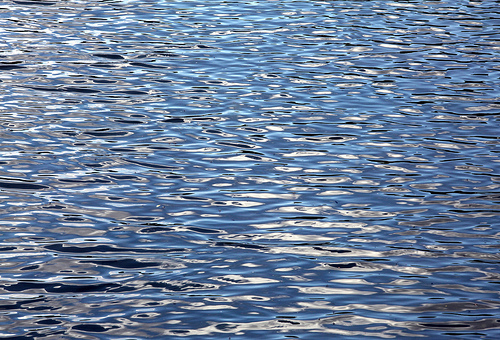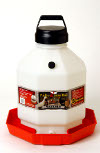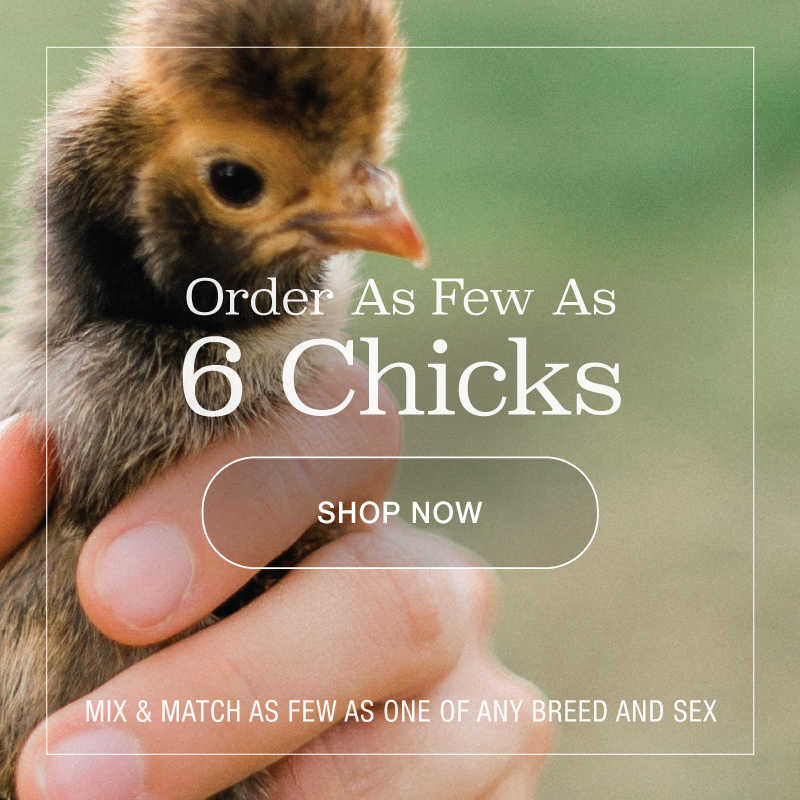
Photo by Joost J. Bakker IJmuiden
Your chickens need to always have access to plenty of clean, fresh drinking water. This is especially important in hot weather when their need for water increases significantly.
Problems Caused by Lack of Water
- Dehydration – When chickens don’t have enough water, they can quickly become dehydrated.
- Poor Egg Laying – Hens that don’t get enough water will lay fewer eggs.
- Forced Molt – Going without water too long can cause a hen to go into a molt, which may stop her egg production entirely.
- Stunted Growth – Water is necessary for proper digestion. Lack of water for young chickens that are still growing can cause them to grow more slowly.
Tips to Make Sure They Get Plenty of Water
- Water temperature – Chickens prefer a water temperature of 55° F. If water is hotter or colder than this, they’ll drink less. Keep their waterers in the shade during the summer months so that the water will stay cooler. In extremely hot weather, you may also want to add ice to their water.
- Taste – If water does not taste good to the chickens, they won’t drink as much. Dissolved minerals and medications can cause water to be less palatable. Because they can affect the taste of the water and discourage drinking, don’t add medications to poultry waterers in hot weather.
-
Large Waterers – During the hot summer months, since your chickens will use more water, you may want to switch to a larger waterer to make sure that they never run out. 5-gallon or 7-gallon founts are a good idea if you have a lot of poultry. It’s also a good idea to use a fount as a backup to any automatic waterers that you are using.
- Automatic Waterers – There are several types of automatic waterers available: poultry cup waterers, expandable low pressure watering system and automatic water bowls. These are all made to be connected to a water supply so that your chickens will have a continuous supply of water. Some automatic waterers will work off of normal residential water pressure (30 to 80 PSI). Others require low pressure (less than 5 PSI) to operate. For those that require low pressure water, you can use a pressure regulator or feed them from a tank using gravity.
- Keep Waterers Level – Please make sure any founts or automatic waterers you use are level and not leaking. A fount that is tilted slightly or that is leaking can run out of water long before the end of the day and cause your chickens unnecessary stress.
For more information on water and heat stress, see The Chicken Health Handbook, by Gail Damerow.




I have a watering tray that converts a 5 gallon bucket to a waterer but my 38 meat birds are going through that in less than a day so I added a 3 gallon Dura Font. It is so aggravating when it comes to getting the top back on. I work and work and when I least expect it the top goes on.
I don’t have that exact fountain but my 5 gallon fountain has a rubber ring around the top that you have to remove periodically, rinse and oil with vegetable oil. That solves the issue of getting the top on.
I will try that.
With all the hot weather that we get in L.A., our chickens (11 four-year-olds) love to hang out in the shade under the orange trees in the backyard. We put a feeder and a “dog bowl” of water on a slightly raised board out there and they are able to walk back and forth to their coop which is a converted shed with their nest boxes and some overnight perches. They have an automatic water bowl and another feeder there. They lay around six eggs a day. About halfway through the day we clean and add new water. If it gets really hot we squirt down their area and make a puddle (about three feet wide) in another shaded area for them to wade through. Chickens and trees are made for each other. If we had an orchard, they would be out there all the time.
I read recently that a little hydrogen peroxide in the chickens water would do away with the green algae and also aid digestion and help eradicate any intestinal parasites that they may have. How true is this?
I never have an algae problem in my waterers. I do scrub them with one of those green scrubbies about once a month and keep the containers in the shade. I also change their water every other day but ‘flush’ at least twice a day. I also use raw, unfiltered apple cider vinegar, since some mentioned vinegar. That is a huge health bonus, but not necessary to keep algae away.
I live on the farm but work for municipal water department. We use a Visine bottle to add two or three drops of household bleach to a 5 gallon hanging waterer. The result for our well water is a perfect 2.0 mg/l chlorine residual which is comparable to that of most municipal systems. After we started doing this our algae and scum problems were gone. I know people don’t like chemicals but in the proper quantities it sure makes life easier.
Green algae grows in the presence of light. If you can block out the light from the water you may have better luck.
Thanks for the great advise, can any one tell me how to stop green algae in my chicken waters. I change the water every morning and still get it. Any help would be great.
Clean your metal water tank with a brush and fill it with fresh water, and put the tank in the shadow not in sun/partly sun. Perhaps change the water twice a day.
Putting a tiny splash of organic red wine vinegar in the water should stop the algae and is good for them. Kills bacteria, aids digestion, etc. I put it in my waterers, and the hens are quite healthy!
Hi Jeanine, the red wine vinegar is interesting to know. Do you have any other pointers like this one (would greatly appreciate it)? Or do you recomend a particular book.
Thank you
Sharon
1st of all clean well, but most of all keep out of sunlight. With out sunlight algae cannot grow.
Hey I will beach out my chicken waters once in awhile. About
once a week. We change the water 3 times a day. But the big
thing is that we actually put the water in the hen house itself.
And the water is up on the floor. So it doesn’t get as dirty and
it is out of the sun
Are your waterers sitting in sunlight? That can cause green algae. Be sure to scrub out the waterers often. I use bleach and then rinse, rinse, rinse!
I also have horses and always have water available for my animals. The most important thing you can do for your animals,
is give them good, clean water.
Thank you for the info. Did not know this.